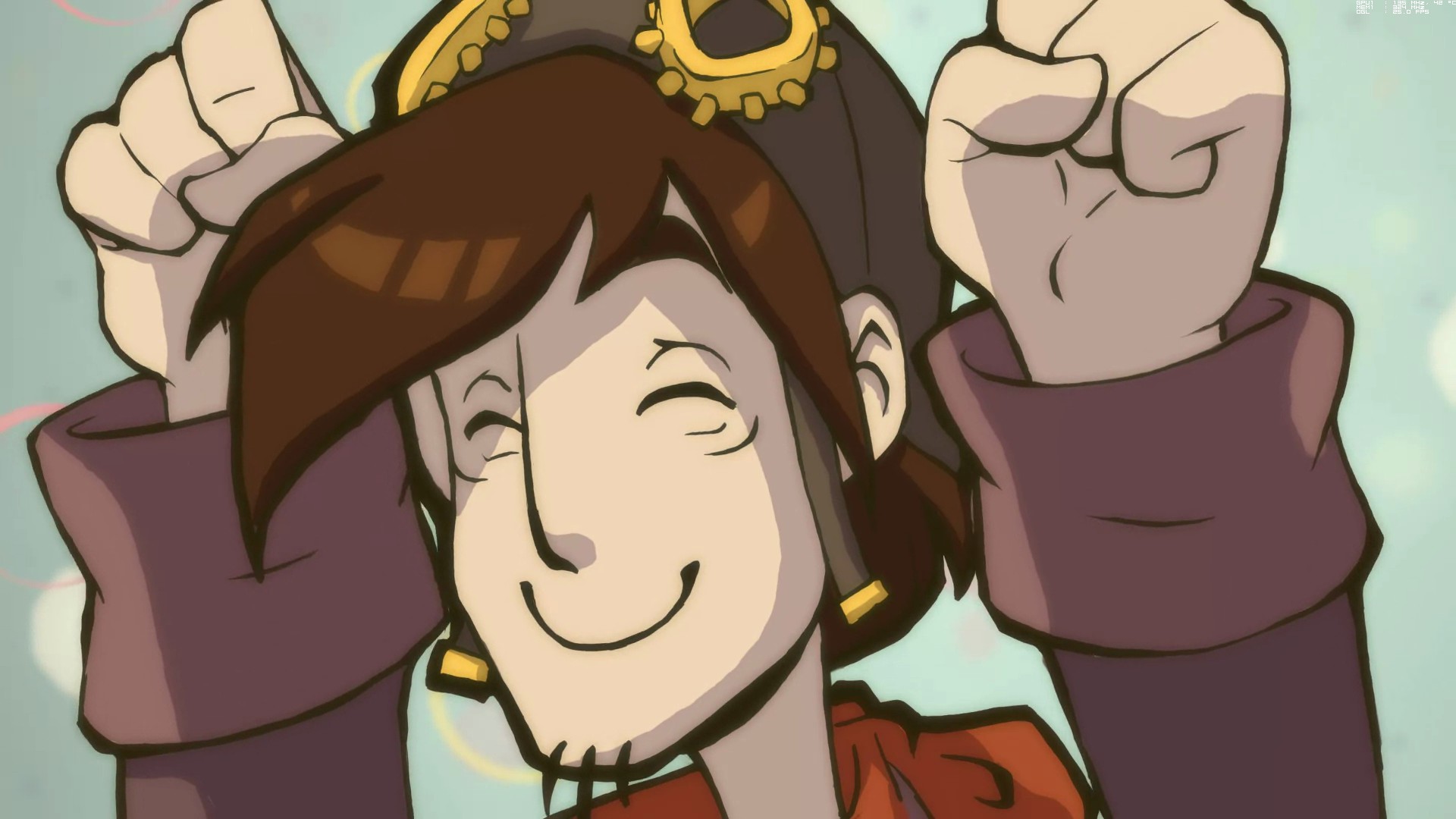

Luckily, Guybrush Threepwood can hold his breath for 10 minutes. In The Secret of Monkey Island, after you complete the aforementioned three trails, you are thrown into the bay while tied to an idol and left to drown. If I were being ungenerous, I’d say one puzzle was lifted nearly wholesale from one game to the other before disguising it. However, these similar puzzles show how closely Deponia sticks to the formula while missing the point behind it. What I have described thus far may make Deponia sound like a vague retread of the LucasArts stable of games, rather than specifically The Secret of Monkey Island.

There is no better comparison to make at this point than through a single puzzle from each game. It is when the pain and damage come despite his best efforts that the game is funny, and even then, it walks the line between being plausible and simple “seeing it coming.” He has no-one to blame for his pain but himself, and that isn’t funny. It is expected and among the more vengeful, something hoped for. Seeing such a cad like him get injured for his asinine behavior isn’t funny. Deponia‘s Rufus on the other hand has few, if any, positive attributes. The player can get behind this character they root for him and laugh at his follies. He is an everyman willing to go the distance. He understands the dangers and the odds and is willing to take the risk. Is his behavior stupid given the danger that he has to put himself through? Yes, but it is commendable stupidity. He has a desire to push forward in the face of any odds, including ludicrous ones. Guybrush Threepwood is naïve and maybe out of his depth, but he isn’t incompetent. There’s no subversion of expectations, only a slavish adherence to behavior that is more repulsive than anything else. It’s an example of a hack following a formula concerning what’s funny. Rufus’s idiocy is actively destructive towards everyone around him, and the game tries to balance out the scales by injuring him as a comeuppance. It isn’t even the type of lack of intelligence that creates abnormal situations to create comedy. Rufus is the idiot who has to try and please the girl and things end up working out for him despite how abhorrent he has been as a person up to this point. Games can barely aim for such an ideal nowadays.ĭeponia, by contrast, falls into the prime time network sit-com television style of comedy. These examples may seem like simple trope subversion, but the game puts them to work through the development of a combination of likable, thinking characters that end up making a commentary on society’s views on gender roles and how storytelling reinforces those views. Your quest to rescue the damsel in distress is - in the end - a waste of time because she has already rescued herself. The tribe of tropical cannibals has gone on a vegetarian diet. Completing the three trials don’t make you special or uniquely qualified for being a hero because they are repeatable tasks, with one even asking you to reset the challenge for the next guy. However, in the details of LucasArts’s game is a highly subversive satirical take on that subject. Throughout the journey, the characters and the game itself are cracking jokes left and right. The hero faces three trials to prove his worth, goes away, faces evil, comes back victorious, and is the better for it. Structurally The Secret of Monkey Island is a standard hero’s journey adventure. It was so far ahead of its time in some respects that I doubt many, if any, could have realized that it was ahead of its time rather than just the next step forward. In fact, looking at the game through modern critical eyes reveals how surprisingly modern the sensibilities of that game are. In going back to check, I found, though, that no, it still holds up amazingly well. I feared that maybe The Secret of Monkey Island was a classic by virtue of the era in which it was released and that the game didn’t hold up that well to a modern eye. In fact, the experience of playing Deponia is so close to that of playing Monkey Island that I second guessed my own evaluation of the latter game, a game that I first played not too long ago (I was a Sierra kid.). In trying to be like Monkey Island, it only makes the ways in which it is not that much more obvious. However, it fails to meet the standards that it sets for itself. It doesn’t live up to Monkey Island’s standards, and, of course, it doesn’t have to. However, those same similarities that remind us of the other game cause Deponia to collapse in on itself. Both games follow hapless rogues on a humorous adventure to get the girl, and there are also similarities in tone, timing, and structure. Deponia is very obviously influenced by The Secret of Monkey Island. I don’t like to keep harping on a bad game, but my mind keeps going back to Deponia. This post includes puzzle spoilers for both The Secret of Monkey Island and Deponia


 0 kommentar(er)
0 kommentar(er)
